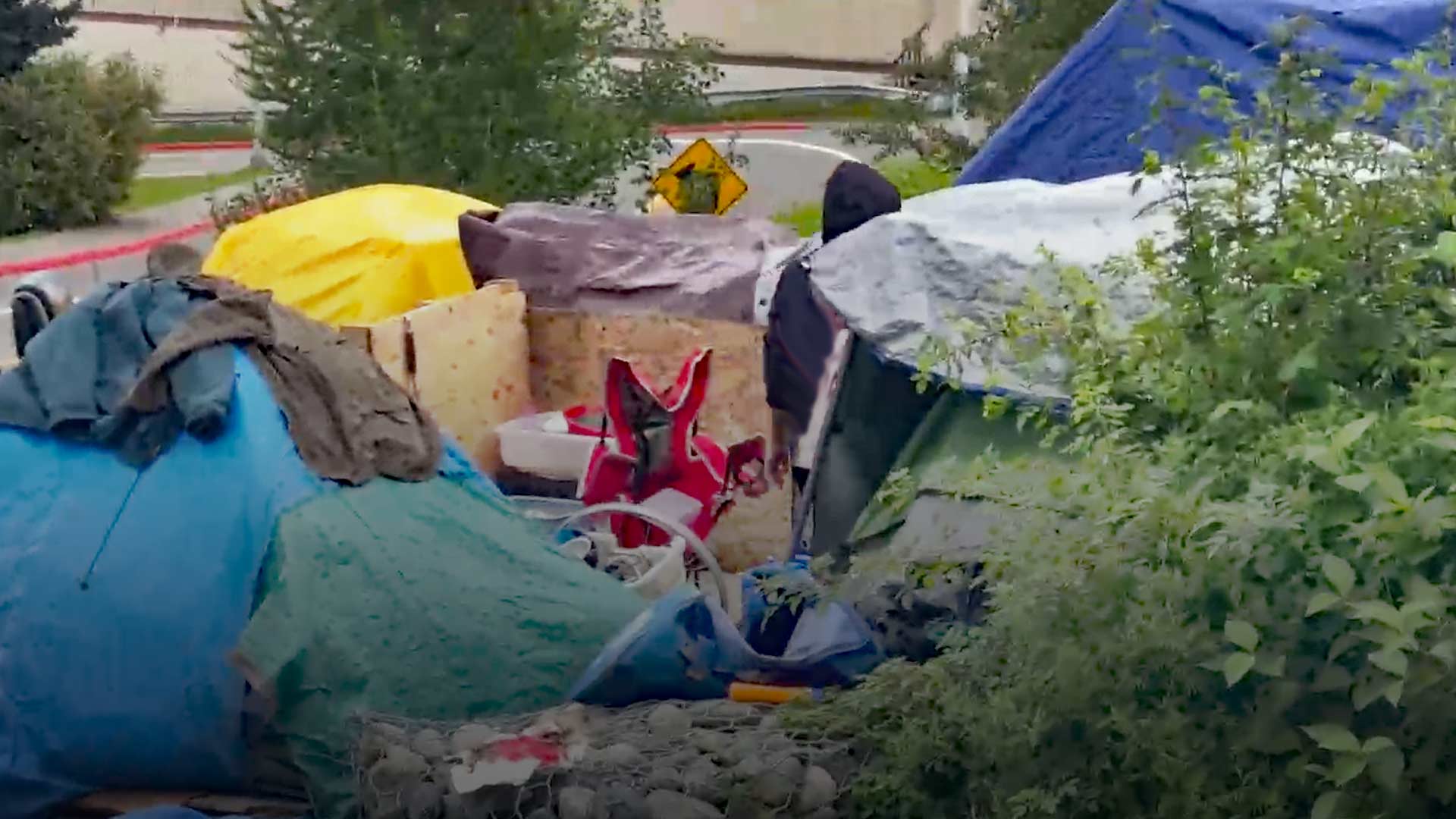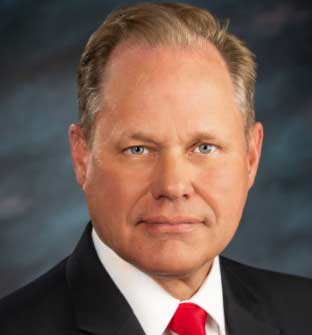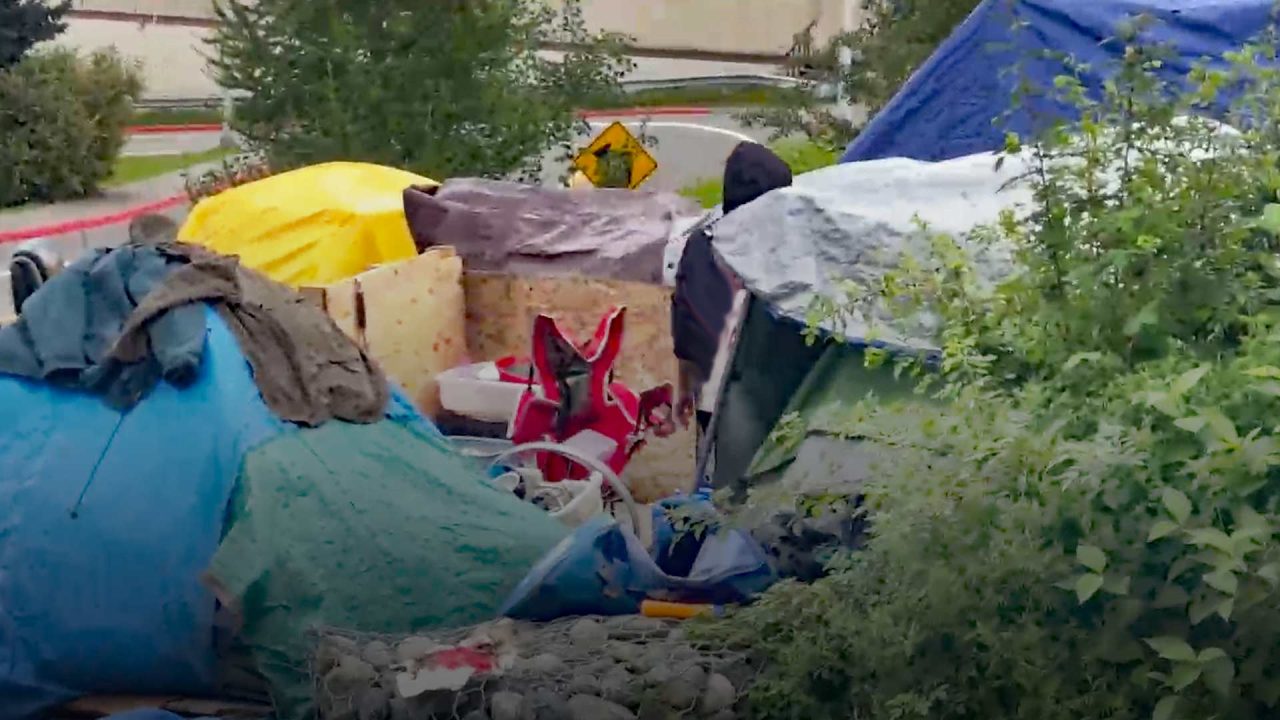
Anchorage Mayor Dave Bronson directed his city attorney Anne Helzer to sign Anchorage onto a 16-city amicus brief petitioning the U.S. Supreme Court to review two recent 9th Circuit Court rulings that place severe restrictions on how cities address homelessness.
In the 2019 case of Martin v. City of Boise, the 9th Circuit invoked the Eighth Amendment to prevent local governments from enforcing neutral laws against camping on public property. Earlier this year, the same court reinforced Martin, in Johnson v. City of Grants Pass, by permanently blocking the city of 38,000 from enforcing prohibitions on public camping unless it first provides a shelter bed for each of the estimated 600 homeless people in the area.
“As a practical matter, these decisions compel local governments to choose between providing shelter or surrendering public lands to encampments that harm local communities.
Led by the International Municipal Lawyers Association’s, the amicus brief argues petitions the Supreme Court to overturn these rulings because they are not supported by any precedent, flout traditional principles of federalism, and use a “shelter availability” test that lacks any limiting principle.
The Martin and Johnson rulings assume that the homeless are somehow immune from enforcement of camping bans because living on public land is an “involuntary act or condition [that] is the unavoidable consequence” of being homeless.
In challenging this premise, the amicus brief notes that “homelessness is a complex and serious social issue that cries out for effective legislative responses.” By tying the hands of local policy makers, the Ninth Circuit has made solving the crisis even harder, the brief notes.
Bronson added that the Supreme Court needs to give cities “more clarity on how they can manage their own cities without the impending threat of a lawsuit.”
It further adds that the so-called “shelter availability test” encourages federal courts to place new and substantial limits around local police powers, and then pre-determines whether a homeless person’s state is “involuntary.”
“This unprecedented methodology is unworkable,” the petition argues. “As a practical matter, these decisions compel local governments to choose between providing shelter or surrendering public lands to encampments that harm local communities. This separation of powers violation has a substantial impact on local budgets and appropriates limited tax dollars for the direct benefit of a disproportionately small percentage of the population.”
The Ninth Circuit rulings also presuppose that temporary shelter beds are the solution to homelessness, the petition continues, which funnels local resources away from longer-term solutions like permanent supportive housing, mental healthcare, drug rehabilitation, and low-income housing support.
ALASKA WATCHMAN DIRECT TO YOUR INBOX
It goes on to argue that local governments should be able to enact local responses to homelessness that are not “compulsory one-dimensional” approaches mandated by a federal court.
“These tough decisions involve philosophical compromises and fiscal tradeoffs; a balancing act the Constitution leaves to local governments to perform,” the petition states. “The Ninth Circuit’s approach is flawed in theory and unworkable in practice.”
In signing onto the petition, Mayor Bronson noted that Anchorage has spent hundreds of millions of dollars to address homelessness.

“While it may have been well-intended, Martin v. Boise has tied our hands from using even the most compassionate and reasonable approaches to keep our streets, public parks, and recreational trails safe,” he stated. “It makes sense that a city shouldn’t unjustly criminalize homeless individuals. However, the 9th circuit has gone beyond what is reasonable to protect our homeless population and has created a situation where our municipality is severely limited in its ability to protect all members of our local community from challenges with our homeless crisis.”
Bronson added that the Supreme Court needs to give cities “more clarity on how they can manage their own cities without the impending threat of a lawsuit.”
Established in 1935, the International Municipal Lawyers Association (“IMLA”) is the oldest and largest association of attorneys representing United States municipalities, counties, and special districts.







4 Comments
It seems to me this homeless problem has been going on way to long. It’s time the democrats of Anchorage get off the pot or… We had a good plan but because the democrats didn’t come up with it they shot it down. now it’s time those homeless folks need a warm bed just like the democrats have and they are still out on the Street. I think if we had an A.G. in this state with any guts he’d levy a fine on Anchorage assembly until they come up with a plan or house ALL the homeless.
What about the (vast majority) of homeless persons who don’t want to be “housed”?
Go Bronson!
Listening to Health Ranger Report for today (9/28/23). Shortly before the 1 hour mark, Mike is talking about Chicago planning areas for tents for migrants. (https://www.brighteon.com/b5812352-e0be-451b-8394-f1c29d20ed3b) Change the wording, Anchorage planning areas for tents for “homeless” people. Any differences? I don’t see any differences. What a great way to introduce into an area a bunch of people-in-need who could easily become looters and create a Mad Max scenario. Here’s an online article about Chicago’s efforts to help the migrants.
https://www.fox32chicago.com/news/chicago-officials-unveil-new-details-about-migrant-tent-cities
I do believe that Anchorage, as a city run by the people, is being set up to be shut down. “Government” will take over and that will be the end of freedom.
Why The Fudge, does the supreme court have power over the states!?
From the bottom up, the people up.. not uncle Trans-Sam down on we the peasants..
>: /